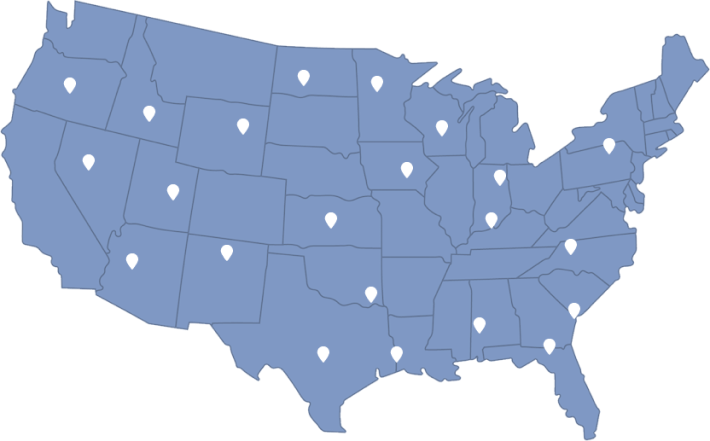Nationwide Nursing Home & Abuse Lawyers
Dedicated legal advocates protecting your loved ones nationwide. When nursing homes break their promise of care, our experienced attorneys fight for the justice your family deserves.

In elderly residents, a concussion can be far more than a momentary scare. It can signal a dangerous fall, a missed supervision protocol, or a deeper breakdown in facility care. And because aging brains are more vulnerable, even mild traumatic brain injuries (TBIs) can lead to cognitive decline, bleeding in the brain, hospitalization, or death.
At Higgins Nursing Home Abuse Lawyers, we work with families across the country to investigate why their loved one suffered a concussion—and whether it could have been prevented. If negligence played a role, we hold facilities accountable.
A concussion is a type of traumatic brain injury (TBI) caused by a blow to the head or a sudden jolt that causes the brain to move rapidly within the skull. In elderly adults, concussions often result from:
Older adults are more likely to experience post-concussion complications such as brain swelling, subdural hematomas (brain bleeds), dizziness, and long-term confusion—even when the injury appears mild at first.
Unlike younger adults, seniors are more likely to:
When a concussion goes unrecognized or untreated, the result can be permanent cognitive decline—or worse.
Staff must be trained to recognize early symptoms of a concussion, especially in residents who are prone to falls or have impaired communication.
In residents with dementia, symptoms may mimic or worsen existing cognitive issues—which means staff must know the baseline and recognize sudden changes.
Concussions are usually the result of unmonitored falls, which are often preventable when facilities meet basic care standards.
| Cause | Explanation |
| Lack of supervision | Residents prone to falling left alone in bathrooms or hallways |
| Failure to provide mobility assistance | Residents not escorted during transfers or ambulation |
| No fall risk assessment | Facility failed to identify or update care plan for high-risk resident |
| Bedrails or restraints used improperly | Leading to falls over rails or entrapment injuries |
| Cluttered or slippery floors | Environmental hazards not addressed by housekeeping |
| Understaffing | Residents attempt to move independently because no one answers call lights |
Our legal team frequently uncovers patterns of negligence that led directly to the incident.
Federal and state regulations require nursing homes to:
Failure to meet these duties may constitute negligence or abuse, especially when a concussion results in long-term harm or death.
In many concussion cases we handle, families are told:
These responses often point to missing documentation, unmonitored time, or skipped checks—all of which can be uncovered through a thorough legal investigation.
Our legal and medical team will:
We don’t just prove the injury happened—we demonstrate how facility failures allowed it to happen.
If your loved one suffered a preventable concussion in a nursing home, your family may be entitled to compensation for:
Every case we take reflects the real-life impact on your loved one’s health, safety, and dignity.
We give families a voice—and bring the full force of the law to protect their loved ones.
If your loved one suffered a concussion or brain injury while in the care of a nursing home, and you have questions about how it happened, we’re here to help. These injuries are not just unfortunate—they are often avoidable.
Dedicated legal advocates protecting your loved ones nationwide. When nursing homes break their promise of care, our experienced attorneys fight for the justice your family deserves.
